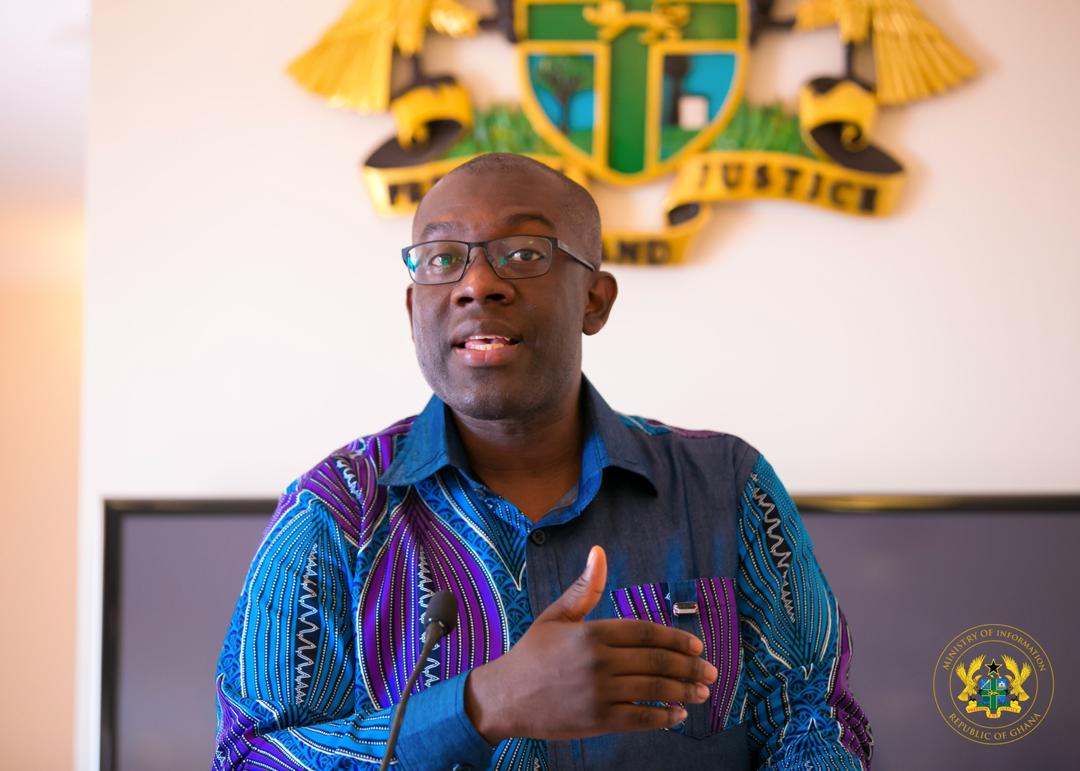
Election year mustn't derail fiscal stability - Akufo-Addo
President Nana Addo Dankwa Akufo-Addo has directed that the fiscal stability achieved over the last three years must not be compromised in the 2020 budget.
The Minister of Information, Mr Kojo Oppong Nkrumah, who announced the President’s directive after a three-day Cabinet Retreat at Peduase in the Eastern Region, indicated that the Fiscal Responsibility Law, which was the new anchor of discipline for the government, prohibited any government from incurring a deficit beyond five per cent of Gross Domestic Product (GDP).
Advertisement
“President Akufo-Addo has particularly mentioned that election-year pressures should not and will not cause the treasury to throw away fiscal discipline,” Mr Oppong Nkrumah emphasised, adding that “the need to meet revenue projections is critical in ensuring that our desires as a nation are met.”
Fiscal slippages
Parliament passed the Fiscal Responsibility Bill into law in December last year to stem the cyclical fiscal slippages associated with the country’s budgets every four to 10 years.
The country has suffered from large fiscal volatility around election cycles for the past two decades. This volatility has been identified as one of the key challenges for the country’s future development path in the 2018 World Bank Systematic Country Diagnostic.
Fiscal deficits increased sharply and above five per cent of GDP in all but the 2004 election year, since 2000.
At 11.5 per cent of GDP, 2012 had the largest ever recorded fiscal deficit in the country. And the level of overshooting in fiscal election cycles has increased over the past decade with the discovery of offshore oil fields in 2017.
Between 2005 and 2012, public expenditure rose rapidly – related to increased spending on wages due to the introduction of the single spine salary structure, which standardised the public sector pay scale across government entities and grade levels – from 20 to 30 per cent of GDP.
Mr Oppong Nkrumah said other statutory obligations for the year, especially the elections, were to be carried within the national resource envelope, stressing that “this is a critical feature of the Ghana Beyond Aid agenda, which requires us to focus more on generating internal resources to meet our key obligations as a state.”
He indicated that the President and Cabinet were upbeat about ending the year on a high fiscal and economic performance and delivering a budget for 2020, which would help consolidate the gains made so far.
Retreat
The Information Minister said the Cabinet meeting examined the status of the economic turnaround programme and approved a framework for the 2020 budget.
“The meetings chaired by President Akufo-Addo have been focused on examining the results of the government’s efforts at correcting the economic challenges inherited at the start of the administration’s work. It has also been focused on laying down some red lines in the preparation of the 2020 budget,” he said.
Mr Oppong Nkrumah said Cabinet was pleased to note that inflation, which was at 15.3 per cent when President Akufo-Addo took over, had decreased to 7.5 per cent following a combination of prudent policies in the real, fiscal and monetary sectors.
“The President has instructed the various agencies that have worked to achieve this to keep on the downward inflationary path so that Ghanaians continue to benefit from relatively lower rates of price increase,” the Minister of Information noted.
Economic rebound
He said growth of the Ghanaian economy had slowed down to 3.4 per cent at the end of 2016, but the situation had since rebounded and was projected to remain above six per cent by the end of 2019, due to various interventions, particularly in agriculture under the Planting for Food and Jobs programme.
He said the annual budget deficit, which accounted for the year-on-year gap between revenues and expenditure, had closed significantly, while interest rates continued to decline.
Mr Oppong Nkrumah said: “Gross international reserves constituted 3.5 months of import cover as of December 2016. With gains in exports, the Akufo-Addo administration has increased it to 4.1 months of import cover as of September, in spite of the Bank of Ghana’s support during some of the trying moments of our currency.”
He said Cabinet was additionally pleased to note that 16 flagship programmes, including the Free Senior High School, were being executed despite the fiscal challenges of the country.




